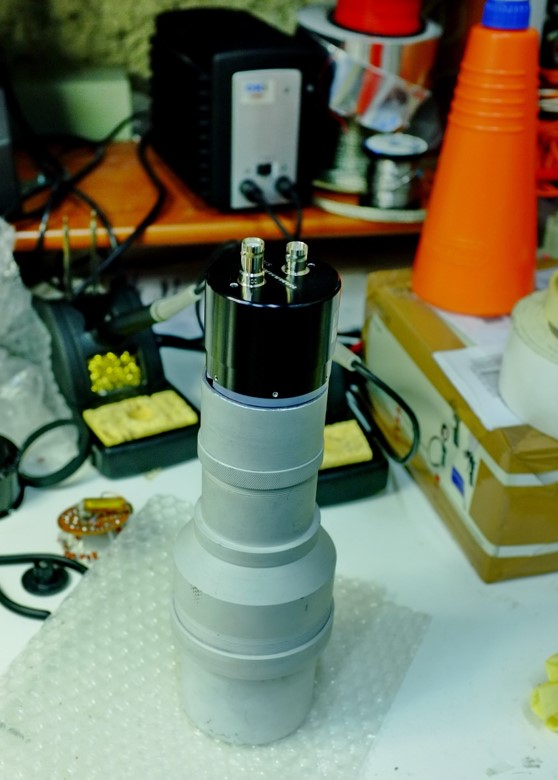A New Method for Measurement of Low Neutron Fluxes using Iodine-Containing Scintillators
One of the most important objectives pursued in low-background experiments on the search for rare events is the study and continuous monitoring of neutron fluxes in the vicinity of the detection setup. The problem is that neutron fluxes in low-background experiments are thousands of times lower than on the ground. The gold standard for neutron flux measurement is the 3He-based counter due to a large cross section for thermal neutron capture (5333 b) and extremely low sensitivity of these counters to the gamma background. Unfortunately, there are no commercial 3He sources: its content in natural helium is only 0.000137%. All the available amount of 3He is produced at nuclear reactors, and its cost is more than $2000 per litre.

 A possible alternative is a detector based on iodine-containing scintillators (CsI and NaI(Tl)). These detectors are simple to operate and are used not only as basic elements of various setups but also as auxiliary detectors. They are highly sensitive to the gamma background, which hampers their use for measurement of low neutron fluxes. A group of experimenters from the Scientific Department of Nuclear Spectroscopy and Radiochemistry (D. V. Ponomarev, S. V. Rozov, D. V. Filosofov, V. V. Timkin, and E. A. Yakushev) came up with a new neutron detection method that allows eliminating this disadvantage. It is based on the capture of thermal neutrons by iodine nuclei (reaction cross section 6.2 b) that are present in the detector. This results in formation of iodine-128 nuclei in the excited state with the energy of 6.8 MeV. Upon deexcitation to the ground state, a considerable number of decays proceed through the 137.8-keV level with the half-life T1/2=845 ns, which allows detection of neutrons on the basis of delayed γγ coincidences with the time window of a few microseconds. Since the background of random coincidences depends almost quadratically on the total background, this method is particularly efficient for low-background measurements.
A possible alternative is a detector based on iodine-containing scintillators (CsI and NaI(Tl)). These detectors are simple to operate and are used not only as basic elements of various setups but also as auxiliary detectors. They are highly sensitive to the gamma background, which hampers their use for measurement of low neutron fluxes. A group of experimenters from the Scientific Department of Nuclear Spectroscopy and Radiochemistry (D. V. Ponomarev, S. V. Rozov, D. V. Filosofov, V. V. Timkin, and E. A. Yakushev) came up with a new neutron detection method that allows eliminating this disadvantage. It is based on the capture of thermal neutrons by iodine nuclei (reaction cross section 6.2 b) that are present in the detector. This results in formation of iodine-128 nuclei in the excited state with the energy of 6.8 MeV. Upon deexcitation to the ground state, a considerable number of decays proceed through the 137.8-keV level with the half-life T1/2=845 ns, which allows detection of neutrons on the basis of delayed γγ coincidences with the time window of a few microseconds. Since the background of random coincidences depends almost quadratically on the total background, this method is particularly efficient for low-background measurements.
With their series of papers “A New Method for Measurement of Low Neutron Fluxes using Iodine-Containing Scintillators”, D. V. Ponomarev, S. V. Rozov, D. V. Filosofov, V. V. Timkin, and E. A. Yakushev became the winners of the 2020 DLNP Research Award Competition in the category “Methodological and Applied Research”.

